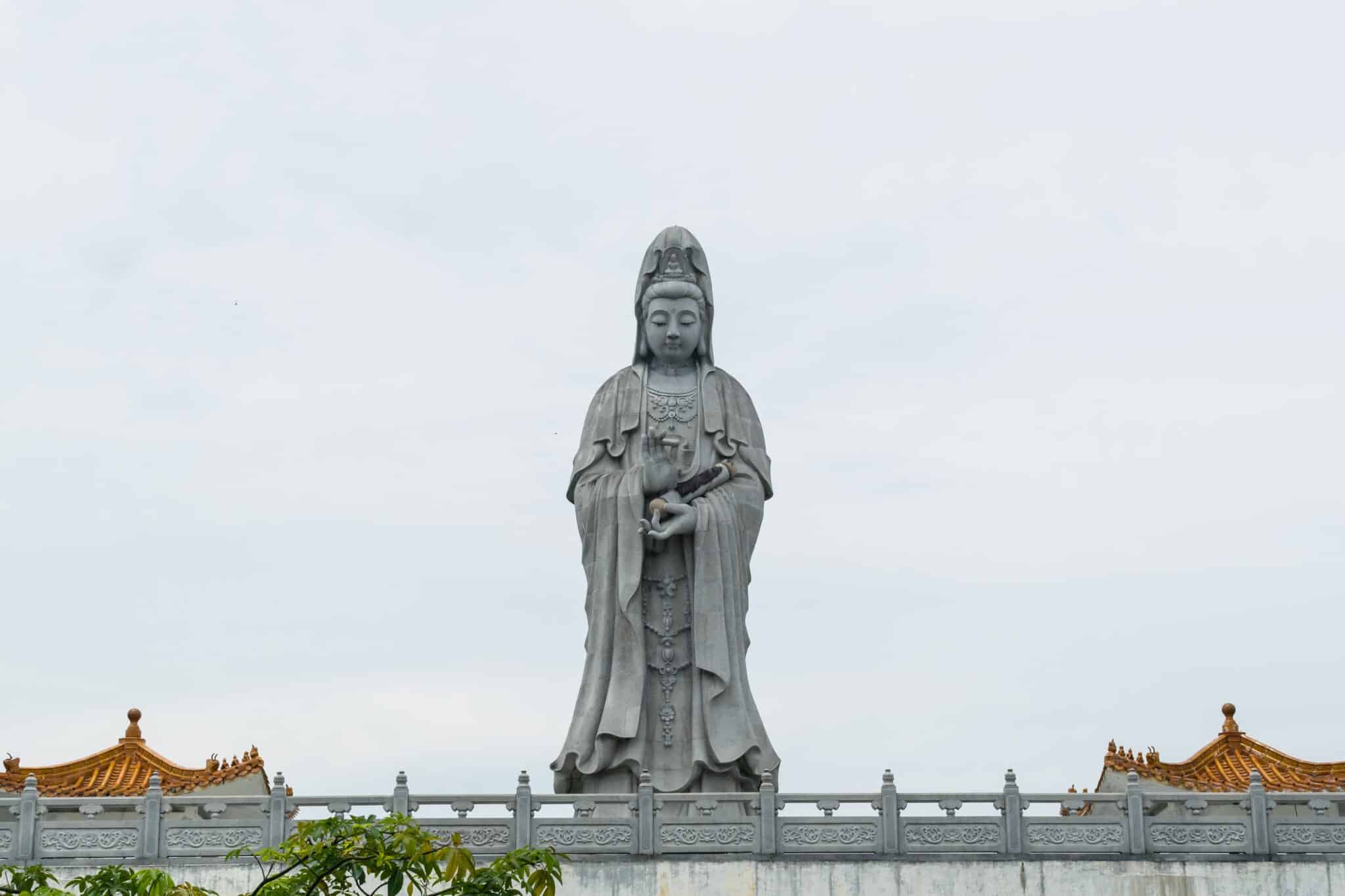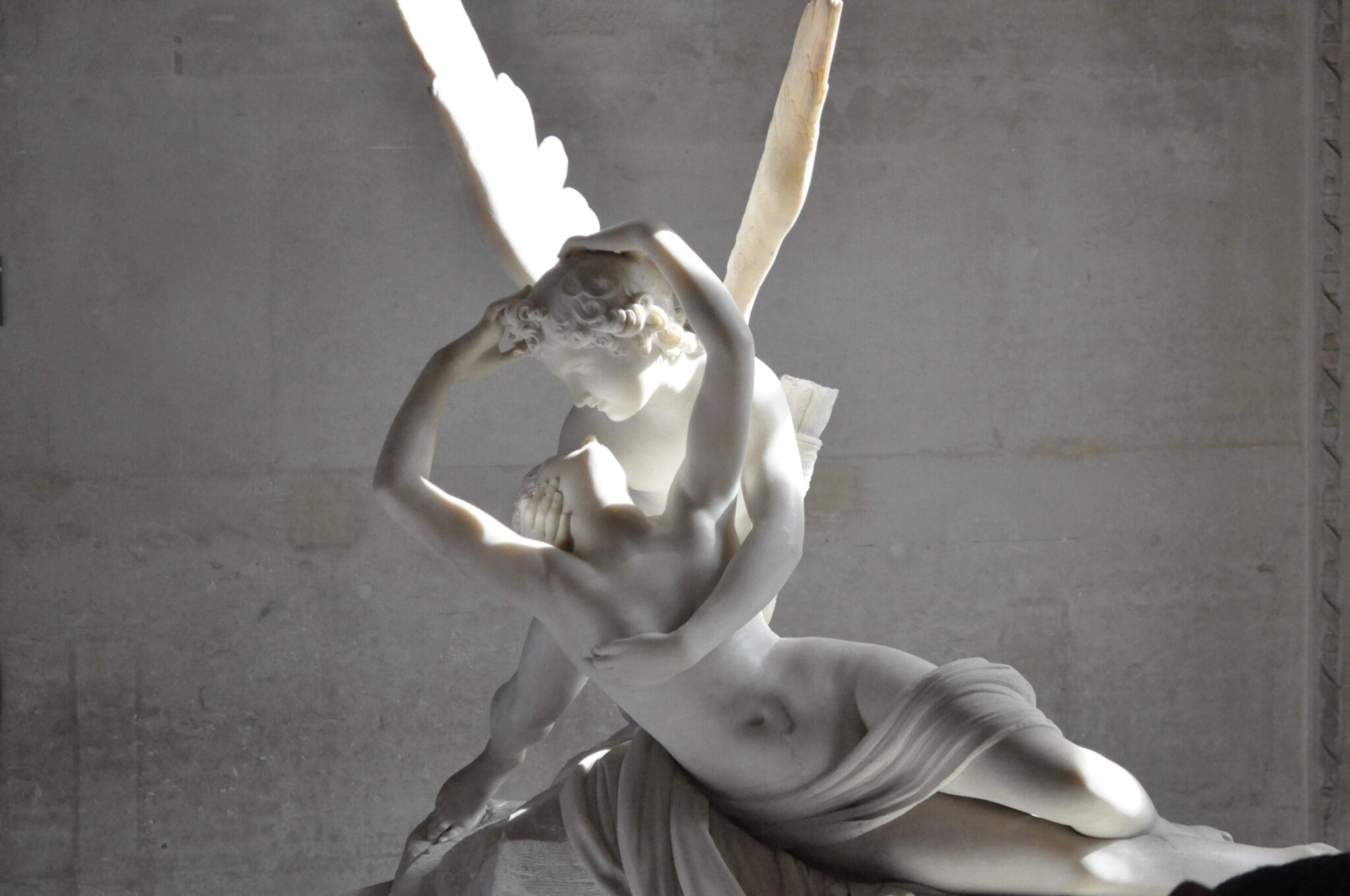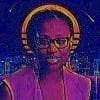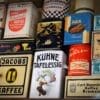Why I Write: An Essay on Language, Writing and Identity
Author’s Memo
This autoethnographic essay offers a musing on the intricate relationship between language, writing and identity through an autoethnographic account of my reading and writing experience from childhood to present day, and from China to the UK via Australia and Germany. It explores how language and writing shape our identities, and how identities are negotiated in social and cultural contexts. Although we are born into languages and social structures beyond our individual control, we can still exercise some agency in choosing how to use the language, what identities we prioritise and how we live our lives. Through language and writing, I have been able to negotiate my own identity in relation to social structures and historical circumstances. Perhaps it is this recognition of individual agency that offers us a sense of hope during and through uncertain times.
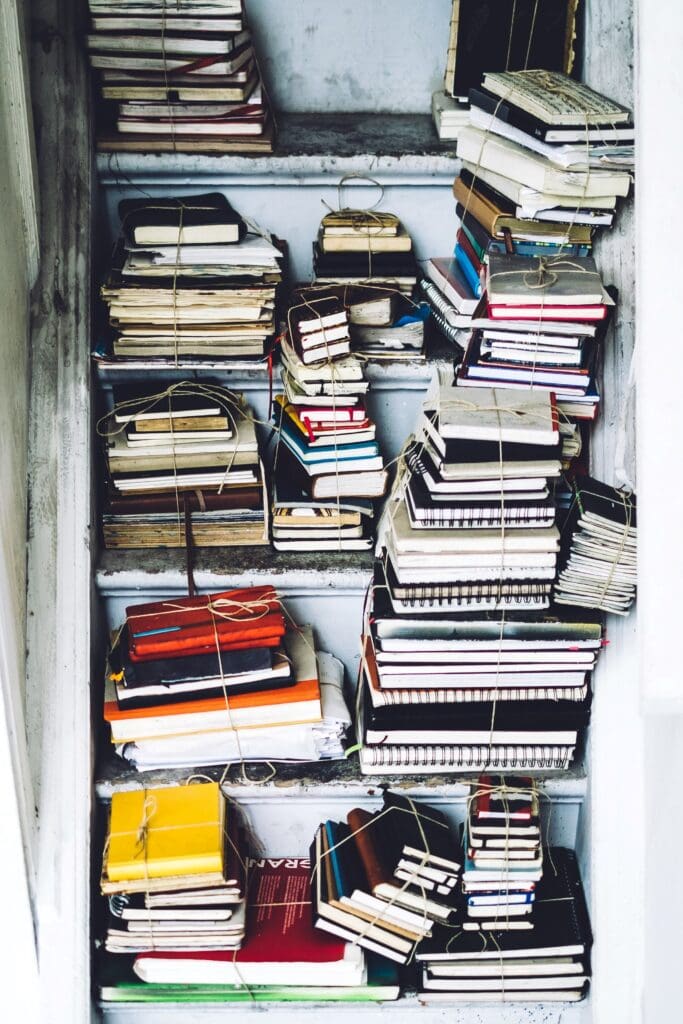
Why I Write: An Essay on Language, Writing and Identity
Why do I write? I write academic articles and scholarly books as part of my job. But what has attracted me to writing other genres such as poetry, short stories, and creative nonfiction? The most straightforward answer is that my writing is driven by the desire to express myself, especially when living in a foreign country as a member of the queer Chinese diaspora and to help pull myself through a global pandemic. But I can also recall other reasons and scenarios that have led me to unexpected directions in my writing career. My love for books and my passion for writing probably started when I was as a child, in Inner Mongolia.
Writing in a Cold Climate
I grew up in Inner Mongolia, the Chinese part of the Mongolia on the China-Russia border. I remember the Gobi Desert which stretched for miles without end. Not many plants grew there except for the jujube trees and goji berry plants. Children loved climbing up the jujube trees in autumn to get delicious jujubes. I remember the Yellow River whose muddy water, mixed with sand and earth, glittered under the sun.
On the river there was a power station designed by Soviet Union experts but completed by the Chinese after the Soviet Union experts had retreated due to the break-up of the Sino-USSR diplomatic relationship in the 1950s. I remember the tall oil rigs whose spires reached high into the sky and I also recall a dark-lit rock sample storage house which an old man I called yeye (grandpa) kindly let me into; he told me fascinating stories about these magical stones from the depth of the earth.
‘I grew up in Inner Mongolia, the Chinese part of the Mongolia on the China-Russia border.
My parents were han migrants to that region. They worked for a state-run oil exploration company and, like other workers, would follow the country’s instructions to go wherever crude oil was available. The adults had come from different parts of the country, and they spoke different dialects and accents. But the children had mostly adopted putonghua, or standard Mandarin, as their first language and lingua franca. Not to pick up a dialect or accent was the advice given by my parents although they spoke putonghua with accents.
My family didn’t have relatives in Inner Mongolia, and that saved me the trouble of learning the complex Chinese vocabulary for uncles and aunts. The four-people family – consisting of my parents, sister and myself – lived alone and lonely without an extended family, in Inner Mongolia; that was a special life experience. In a sense, we were modern nomads growing up in a multicultural, migrant community, having no strong sense of hometown and learning to make home where life took us. These childhood experiences and attitudes toward home would later inform my life trajectory and attitudes towards the home.
‘The four-people family – consisting of my parents, sister and myself – lived alone and lonely without an extended family, in Inner Mongolia; that was a special life experience.
My parents were ordinary workers, and both had only finished secondary school. There were not many books at home at the beginning. The only books I could find was Mao’s red book or the collected works of Marx, Engels, Lenin and Stalin, which no one at the time had any interest in reading. The Culture Revolution had finished, and Mao had passed away before my birth, so I was spared from the highly ideological education my parents once had.
My father subscribed to Dazhong dianying (Popular Cinema), a monthly film magazine with some coloured, glossy page inserts. My mother was a self-made tailor and would make some of our clothes based on the cut-outs from the Shizhuang (Fashion) magazine. At some point, the family also subscribed to Shaonian wenxue bao (Children’s Literary Monthly) to support my interest in literature. My parents were not well-off, but they did what they could afford to give me and my sister a decent literary education outside the school system.
‘There were not many books at home at the beginning. The only books I could find was Mao’s red book or the collected works of Marx, Engels, Lenin and Stalin, which no one at the time had the interest of reading.
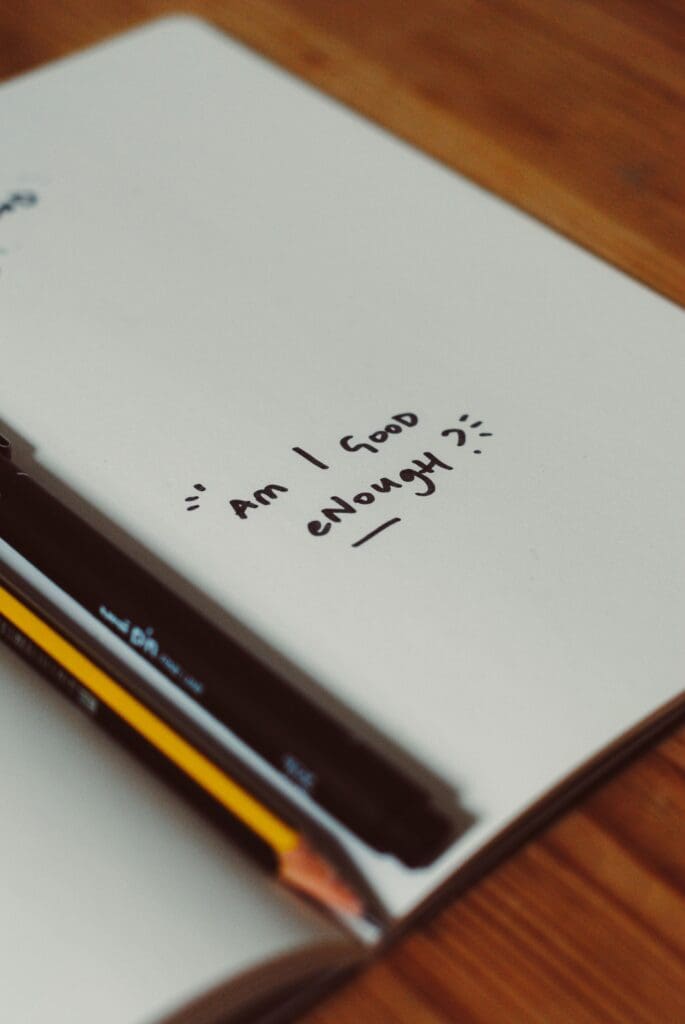
As I entered secondary school, I started to read books in my spare time. I tried the ‘Four Chinese Classics’ – four novels considered to represent the highest achievements in classical Chinese literature and I wasn’t interested in, or couldn’t understand much of, the other three books, but the story about the Money King in Journey to the West immediately captured my attention. I imagined myself developing a magic power to fly in the air, to shapeshift at my own free will, and to fight monsters and help poor people and I was also fascinated by Western literature translated into Chinese. The local Xinhua Bookstore had a ‘foreign literature’ section, and that was where I spent most of the weekends and my pocket money.
Over time, I completed an eclectic reading list, such as And Quiet Flows the Don by Mikhail Sholokhov, Great Expectations by Charles Dickens, How the Steel was Tempered byNikolai Ostrovsky, Jane Eyre by Charlotte Bronte, Madame Bovary by Gustave Flaubert, Tess of the d’Urbervilles by Thomas Hardy, The Gadfly by Ethel Voynich, The Hunchback of Notre-Dame by Victor Hugo, The Red and The Black by Stendhal, The Sorrows of Young Werther by Goethe, The Three Musketeers by Alexandre Dumas and War and Peace by Leo Tolstoy.
‘My greatest achievement was the acquisition of the four-volume Chinese translation of Leo Tolstoy’s War and Peace from a schoolmate’s parents.
From today’s perspective, this would seem a strange reading list for a teenager, but it represented what I could find at the time. My greatest achievement was the acquisition of the four-volume Chinese translation of Leo Tolstoy’s War and Peace from a schoolmate’s parents. I didn’t quite understand why they gave me the books, but they simply said I could keep them, knowing that I loved books. I was beyond excitement. For weeks I would sit in bed overnight with an electric torch, moved by the love story between Pierre and Natasha. The book was printed in traditional Chinese characters, frequently interrupted by dialogues in French, but that didn’t affect my enthusiasm. I couldn’t understand the historical background depicted in the novel but that didn’t matter. It was Pierre and Natasha that I cared about the most.
‘… ‘Four Chinese Classics’ – four novels considered to represent the highest achievements in classical Chinese literature.
I was terribly shy and introvert at the time and stuttered when I spoke in class. One of my schoolteachers even suspected that I had a speech problem. Also, I suffered from a strong inferiority complex. By that time, I had already realized that my family was poor, and we couldn’t afford, nor should I ask for, many things that other school children possessed. The pair of sneakers I wore was old and yellow, and every weekend I had to paint the surface with white chalk because the PE teacher required pupils to wear white sneakers.
My maths was terribly bad. Reading and writing was the only thing I could do well, and that would give me some confidence. When other kids were playing games, I was reading books. This probably didn’t help my eyesight, as I had high myopia and had to wear thick glasses. But it did give me access to a fantasy world where I could forget who and where I was.
‘When other kids were playing games, I was reading books… But it did give me access to a fantasy world where I could forget who and where I was.
At the same time, I started to write poems and essays. I sent some of my poems and prose to local newspapers and youth literary magazines. To my surprise, some of them got accepted and subsequently published. I even started writing a novel centering on the life of a middle-aged man. I didn’t know why I had decided to write about him, but I suppose most of the novels I had read had a middle-aged male character. As a teenager, I was probably trying to imagine what I could be when growing up. I didn’t finish the novel, largely because I didn’t have the life experience, and the writing skill, required to tell the story. My biggest achievement at the time was to win the third prize of a national writing competition for young people.
The writing brief was to narrate the journey of a letter, perhaps because the competition was sponsored by the China Post. I wrote about the transnational journey of a letter, told by the letter from a first-person point of view. The letter traveled by train, ship and air from China to waiguo (an unnamed foreign country) – except that I had never been on a ship or a plane before. I remember attending a prize awarding ceremony in front of the whole school on a chilly Spring morning a few months later, wearing my mother’s handmade sailor-style jacket, and reading out a speech thanking everyone else but myself. My hands and voice were trembling because of the cold and nervousness. That was my first public speech in front of a large crowd. I was eleven years old at the time.
‘The writing prize gave me more confidence in writing; it made me treat writing more seriously.
The writing prize gave me more confidence in writing; it made me treat writing more seriously. It also led to opportunities such as being appointed as an editor of the school newspaper and being invited to contribute to the local newspaper. Making penfriends by exchanging handwritten letters was popular in the 1980s China. I made a penfriend with a boy of my age from South China’s Jiangsu Province. We both loved writing, and each handwritten letter was a thick pile of three to five pages long. I forgot what we wrote at the time, but it felt liberating to be able to write freely with a stranger from another part of the country and share things we wouldn’t even tell our parents.
The two of us corresponded with each other for three years until we both went to college. I also had letter correspondence with an editor of a youth literary journal. From his name and handwriting, I imagined it must be an old man. He encouraged me to keep writing and shared with me his writing experience. In one of the letters, he wrote that he liked Anna Akhmatova but not Vladimir Mayakovsky. I knew about neither writers nor what they represented. I hadn’t thought about how an editor in Beijing would have the time or the patience to write to a teenager in Inner Mongolia, but was grateful for his encouragement.
‘… it felt liberating to be able to write freely with a stranger from another part of the country and share things we wouldn’t even tell our parents.
I finished my secondary school as a rebellious young man, wanting to escape from home as soon as possible. A graduation present I got was a copy of Puskin’s The Captain’s Daughter from a Manchurian girl, not realising it was perhaps her way to express love. I attended a senior high school in another Inner Mongolian town, where I met more local students. There I developed a friendship with a boy who was interested in football and poetry. His heroes were Diego Maradona and Lord Byron. He wrote beautifully in Chinese in Byronic verses. We started to write hand-written letters to each other, even though we were in the same class and saw each other every day.
They were not love letters but had a sentimental, romantic undertone. I poured out my hearts and feelings in those long letters of five to ten pages long each on schoolwork paper. We stopped writing letters when he had a girlfriend, a talented girl in our class who spoke good English. I felt jealous and betrayed. I didn’t know why. Nor could I explain the nature of our relationship which certainly felt stronger than friendship. At that stage in life, I had learned about love from literature, but I hardly knew what it meant in real life. No one could tell me that two men could also fall in love with each other. This was about to change when I went to university in a bigger city and learned to surf the Internet.

From Literature to Journalism
Before high school graduation, I had already figured out that I wouldn’t want to become a full-time writer. People had warned me that being a writer was a precarious career choice and that it would be best to choose a career by which one could make a living. I loved foreign language and literature, and I thought I could study English to become a teacher of English in the future. So I chose the foreign language major when I applied to universities. I wasn’t admitted by Inner Mongolian Normal University I had applied for in the first round. I studied hard for another year, took the college entrance examination again, and eventually got an offer from Xi’an Foreign Languages Institute (later called Xi’an International Studies University) the following year.
At university, I started with a Japanese language major for a couple of weeks but soon switched to English Education because the latter course was state-funded, charging a small tuition fee and offering a generous stipend and better job security. It was the best choice for me and my family at the time as I didn’t want to get my parents into a large debt before graduation.
‘Before high school graduation, I had already figured out that I wouldn’t want to become a full-time writer.
At Xi’an Foreign Languages Institute, I embraced the study of literature. I took courses on world literature, British literature, American literature, English poetry and of course Chinese literature. My favourite class was the world literature class which expanded my horizon beyond the Western literary cannon; it also taught me different ways of doing literary criticism. Before my final year I had already decided that I wanted to study an MA in English literature.
Meanwhile, a fellow student told me that he would be applying for a second BA course in International and Intercultural Communication. He asked if I would be interested in coming along with him. We applied for the course and travelled to Beijing to take the entrance exam. When the exam result was announced, I got an offer, but he didn’t. It must have been my writing skill, both in Chinese and in English, that helped me get the place.
Now I was faced with the difficult choice of whether to do a MA in English Literature as I had originally planned, or if I should go to Beijing and do a second BA course. I chose the latter, because it was my dream to go to Beijing, and to study at Peking University, one of China’s best and most liberal universities. Communication studies was a relatively new field of study and it sounded more interesting than English literature.
‘Communication studies was a relatively new field of study and it sounded more interesting than English literature.
As one of the most liberal places in China, Peking University didn’t disappoint me. The programme introduced me to the field of journalism and communication, which meant that students had to face real-life problems in Chinese society. My world, which used to be full of the beautiful verses of Shelly and Keats, suddenly opened up to a real, much harsher world. I started to see social inequalities and injustices around me, in Chinese society and in the world. I was asked to respond to them, with pen and computer keywords. It was also at this time I learned to use the computer and surf the Internet. The university’s bulletin board system was full of interesting, political and social discussions every day.
I also discovered queer websites and read queer online literature such as Beijing Story (later adapted into a gay film called Lan Yu). By that time I had known that I was gay, but I did not have the courage to come out. A male student living in the same dorm once made a casual remark about the ‘abnormality’ and ‘sickness’ of gay people. His derogatory language and disgusted facial expression stuck in my mind for a long time.
‘I started to see social inequalities and injustices around me, in Chinese society and in the world.
At Peking University, besides my own courses, I also roamed around schools and departments and audited lectures including Dai Jinhua’s lecture on cinema, Qian Liqun’s lecture on Lu Xun, Ye Lang’s lectures on aesthetics and the philosophy of art, and Zhu Qingsheng’s lectures on contemporary art. I even took a drama class and a class on Beethoven. These classes expanded my horizon and developed my interest in arts. Before graduation I had already decided that I wouldn’t want to be a journalist. China’s state media and the censorship system offered little hope for journalists with ideals and dreams. There were brave journalists in China fighting within and against the system with admirable courage and perseverance. But I wasn’t sure if I could be as courageous as them. Becoming a journalist seemed an unattainable dream for me.
‘The programme introduced me to the field of journalism and communication, which meant that students had to face real-life problems in Chinese society.
After graduating with a journalism degree, I went to Nanjing for a semester to do a MA certificate in American Studies on a joint programme co-organised by Nanjing University and Johns Hopkins University. The course didn’t interest me that much as I later found out it was more about economics and international relations. Perhaps they were what the programme convenors thought Chinese students would have interest in. But my life experience there was unforgettable. The course put Chinese and international students in the same residence (unlike other Chinese universities which would put them in different dormitories) and created plenty of opportunities for cross-cultural communication.
A good friend of mine was an American student who has interest in Bei Dao’s poetry. We organised a poetry slam which few people attended. After the first semester, I left the programme, partly because it didn’t interest me that much, and partly because I got a job offer in Beijing and the employer was urging me to start work as soon as possible. I returned to Beijing, not expecting that I would be plunged into a SARS epidemic, an air-borne viral infection, that Spring and Summer. During the lockdown, I re-read some contemporary Chinese novels such as those by Lu Yao, Jia Pingwa and Yu Hua.
‘This was also a time when I began to explore my own sexuality and got to know more about Beijing’s queer community.
I worked as a lecturer of International and Intercultural Communication at the National Academy of Chinese Theatre Arts for five years. I was once put in the position of programme director. At the academy, I started to develop an interest in classical Chinese opera and read on Chinese art history and theory. I also realised how Western my previous education had been and started to reflect on the Western hegemony of global knowledge production.
This was also a time when I began to explore my own sexuality and got to know more about Beijing’s queer community. I carried on with the habit of reading but did not have much time to write. Even when it came to boring, bureaucratic work such as filling out forms and writing reports, I was aware of my passion for writing. I was perhaps waiting for the right time and space to release the words from my mind.
Coming Out in Australia
Five years of working experience at a theatre academy made me realise that I needed more time for reading and writing. A full-time job as a university lecturer offered me some financial security but not necessarily the time for reading and writing. It was also a time when I increasingly felt the tension between my gay identity and a Chinese society where being gay could not be accepted. I applied for a graduate programme in Australia, with the University of Sydney, and was lucky enough to be awarded a scholarship. Life took an unexpected turn as I embarked on a PhD study in Australia at the age of thirty.
At Sydney I started with a research topic on a popular Chinese television programme but changed my topic to Chinese queer culture after a semester. Three factors were fundamental to the change: firstly, I hadn’t been aware that queer studies was a perfectly legitimate field of study until I met other queer scholars in Sydney; secondly, in the first semester of my PhD, I met the famous Chinese queer filmmaker Cui Zi’en who was visiting Sydney and screening his films at the time.
It was fascinating to hear from Cui Zi’en about what was going on in the Chinese queer community and I felt this would be an important and interesting topic for me to study; thirdly, I had been doing things to live up to other people’s expectation for thirty years, and it seemed time for me to do something for myself, and write about something where my genuine interest and passion lay. I also felt confident that I would be in a good position to research the topic and would be able to do it well.
‘It was also a time when I increasingly felt the tension between my gay identity…
In the next four years I travelled between Australia and China, conducting my fieldwork and writing my thesis. I was fortunate to have witnessed the ‘golden era’ of Chinese queer activism in the late 2000s when there was plenty of creative energy in China’s queer communities. Many interviewees I met would later become long-term friends. The fieldwork also turned me into a committed academic activist, using my writing to document Chinese queer history. At Sydney I read widely on gender and cultural theories, and became a Foucauldian scholar.
The department I was in, Gender and Cultural Studies, had a very supportive staff and student community. A lot of ideas and inspirations emerged in post-seminar conversations as we were drinking in pubs. Teachers from the Chinese Studies department and Asia Studies department who guided me to read works in China studies and strongly supported me. It was in this process I critically reflected on my past obsession with Western culture and high culture and started to treat Chinese experience and everyday life more seriously.
‘I was fortunate to have witnessed the ‘golden era’ of Chinese queer activism in the late 2000s when there was plenty of creative energy in China’s queer communities.
I started to write in academic English at the time. My teachers such as Catherine Driscoll, Elspeth Probyn and Meaghan Morris had an important impact on my writing style, as their writings encouraged me to write in an auto-ethnographic, critical and affective mode. As a result, I never really developed the type of dense and abstruse writing style infamously associated with academic writing.
Instead, I tried to foreground my own subjectivity and theorise my own experience. I also endeavored to write for a wider readership by using simple language and adopting a clear writing style. I decided to give up writing in Chinese and use English as my primary written language. Writing in English felt liberating for me as I didn’t have to worry about the conventions in Chinese language or pretending to be intelligent or philosophical. In a way, writing in English felt like a form of masquerade, through which I could write about China without having to worry about censorship and self-censorship.
Besides my PhD study, I also ventured into Sydney’s gay scene and explored my own sexuality. I met some wonderful people who accepted me into their lives. I felt comfortable and was able to come out, although I could also feel the prevalent racism towards Asians in the Australian gay community, the increasing Sinophobia in Australian politics and society, as well as the tension between my Asianness and queerness. Before graduation, I had made up my mind that I wouldn’t go back to China, even if that meant that I had to drift around the world. Just at that time, an opportunity came up for me to do a six-month fellowship in Germany, at the Free University of Berlin. I embraced the opportunity without hesitation.
Lost in Languages
For a queer person like me, Berlin offered an unprecedented degree of sexual and personal freedom. Also importantly, there was an overall lack of misunderstanding of, or even a lack of effort to understand, China in German society. This somehow felt liberating to me after all the heated political debates about China that had pervaded Australian media. Being Chinese, I felt invisible in German society.
But my ‘honeymoon’ with German society and the ‘poor but sexy’ Berlin didn’t last long. I soon came face to face with racial stereotypes and racist attitudes towards Asians in German society at large and in the gay community in particular. To integrate better into German society and make my life easier, I decided to learn the language. I started attending German lessons, five evenings a week, and three hours each time, all conducted in German.
Soon I was able to carry out daily conversations in German, and many newspaper headlines also started to make sense. I love learning languages and enjoyed the challenge of taking a crack on a difficult language in my mid-thirties. It was reassuring to see my progress every day. It also felt good to surround myself with people from different countries and cultures who, like me, had made their way to Germany by different means, trying to start a new life in the country.
‘As Chinese, I felt invisible in German society.
As I deeply focused on learning German, I developed depression, or depression-like symptoms, in the cold climate and in a foreign country. I found that both my Chinese and English skills had receded. In fact, I could not write in Chinese or English anymore. I was like a child, struggling to express myself in a foreign language and feeling that I didn’t belong to any language or culture. This situation lasted a few years until I found my confidence in the UK and was able to go back to writing in English.
Creative Writing in the Pandemic
My UK years has roughly consisted of a six-month visiting fellowship in London and then by now more than a decade in Nottingham, a small city in the middle of England. Life in London was exciting, but I felt a lot of uncertainties and anxieties about the future. It was a great relief when I got a stable job in Nottingham, first working for Nottingham Trent University and then for the University of Nottingham, teaching media studies. Although I took my education in journalism and cultural studies, I didn’t have a proper media studies education. So I had to teach myself before I taught students. But I was a quick learner and, because of my own interdisciplinary background, new disciplines or scholarly fields never daunted me.
It was a great relief to be able to settle down in Nottingham after years of drifting around the world. Job security meant that I was able to think of long-term plans such as writing research monographs, organising international conferences and workshops, and editing books and special journal issues. In the process of writing, I overcame my depression and writing block and was able to write in English again.
‘Life in London was exciting, but I felt a lot of uncertainties and anxieties about the future.
Because of my own journalism background, I was never content with writing academic books and articles. I started to write reviews, op-eds, and critical essays for websites to comment on contemporary issues. In 2020 and 2021, when the Covid struck, I felt trapped at home and between cultures. During the period of pandemic lockdown, I felt a strong urge to express myself. Poetry and personal autobiographic essays came to me naturally. I started to read poetry and novels and rekindle my passion for literature. I also started to take creative writing more seriously and enrolled myself in online evening courses at City Lit London. It was through creative writing I found like-minded people and a writing community. It felt liberating to be able to express oneself unconstrained by scholarly conventions. Writing helped me get through the most difficult times of the pandemic, and cope with loneliness, depression and identity crisis.
My greatest inspirations in reading are queer and East Asian writers. Queer writers such as James Baldwin, Garth Greenwell, Alan Hollinghurst and Tomasz Jędrowski taught me that queer experience matters. East Asian writers such as Xiaolu Guo and Yiyun Li taught me that one can write in a foreign language. There are of course queer East Asian writers such as Mary Jean Chan, Chen Chen, Will Harris and Sarah Howe whose poetry spoke to my experience in intimate ways. I found my own cultural heritage in these queer East Asian literary works. It was the inspiration of these writers and works that gave me confidence in writing.
‘During the period of pandemic lockdown, I felt a strong urge to express myself. Poetry and personal autobiographic essays came to me naturally.
Although I have published some poems, short stories and autobiographical essays, I am still relatively new to creative writing. I’m fully aware of the challenge of writing in a foreign language, as well as the not-always-smooth transition across different genres such as journalism, academic writing and creative writing. I’m also in the process of finding my own voice and developing my own writing style. I look forward to trying new ways to render my queer East Asian experience in writing and use my writing to empower myself and others.
In sum, I have offered an autoethnographic account of my reading and writing experience from childhood to present, and from China to the UK via Australia and Germany. Through this account, I have tried to untangle, and critically reflect on, the complex relationship between language, literature and identity. Although we are born into languages and social structures beyond our individual control, we can still exercise some agency in choosing how to use the language, what identities we prioritise and how we live our lives. Through language and writing, I have been able to negotiate my own identity in relation to social structures and historical circumstances. Although this piece of writing gives a temporary coherence to my experience, writing the account itself has become a deeply critical, self-reflexive and even therapeutic experience for me.
Credits
Photo of a pile of diaries by Julia Joppien for Unsplash
Featured image by Noah Buscher for Unsplash
A photo of writing ‘Am I good enough?’ by Nik for Unsplash
Lots of miniature heads by Carson Arias for Unsplash
Learn More
New to autoethnography? Visit What Is Autoethnography? How Can I Learn More? to learn about autoethnographic writing and expressive arts. Interested in contributing? Then, view our editorial board’s What Do Editors Look for When Reviewing Evocative Autoethnographic Work?. Accordingly, check out our Submissions page. View Our Team in order to learn about our editorial board. Please see our Work with Us page to learn about volunteering at The AutoEthnographer. Visit Scholarships to learn about our annual student scholarship competition.
Hongwei Bao (he/they) grew up in China and lives in Nottingham, UK. He studied Gender and Cultural Studies at the University of Sydney, Australia, and creative writing at City Lit, London. He uses poetry, short stories and creative nonfiction to explore issues of queer desire, Asian identity, gender politics and transcultural intimacy. His work has appeared in Cha: An Asian Literary Journal, Ponder Review, Positions Politics, Shanghai Literary Review, The Autoethnographer, The Sociological Review, Voice & Verse, Write On and Words Without Borders. His short stories were shortlisted for the Plaza Prize 2023 for Sudden Fiction. His nonfiction ‘Fragrant Bananas’ is forthcoming with the Allegory Ridge Nonfiction Anthology Allegheny.


